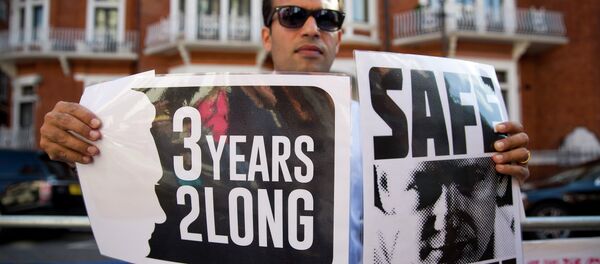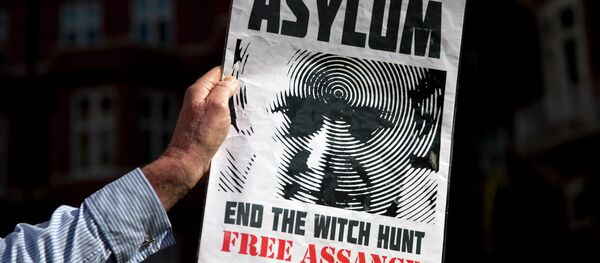Earlier, Swedish prosecutor Marianne Ny was quoted as saying that she was "obliged to drop part of the investigation" because the statute of limitations expired after five years on one count of sexual assault and another of unlawful coercion.
Under Swedish law, suspects must be questioned before the statute of limitations expires, otherwise they can no longer be charged for the alleged crimes.
However, Ny still wants to question Assange over the more serious allegation of rape, which carries a 10-year statute of limitations, due to expire on August 17, 2020.
Assange has repeatedly rejected the allegations by two Swedish women, insisting that the sexual encounters were consensual. The allegations were revealed in a confidential Swedish police report, released in late 2010.
"I am extremely disappointed. There was no need for any of this. I am an innocent man. I haven’t even been charged," Assange said last week.
Since 2012, Assange has been holed up in Ecuador's London embassy to avoid extradition to Sweden. The embassy is under 24-hour police guard.
The 44-year-old may finally be extradited to the United States, where he is wanted for having leaked hundreds of thousands of secret military and diplomatic documents in 2010.
Assange and his supporters claim that the rape and sexual molestation charges are a ruse, part of a US plot to deliver him to Washington for his role as a whistleblower.
Meanwhile, Britain's The Times newspaper has cited Assange as saying that there is "very suggestive evidence" that the two Swedish women were allegedly motivated by revenge, money and police pressure when accusing him of sexual assault.




